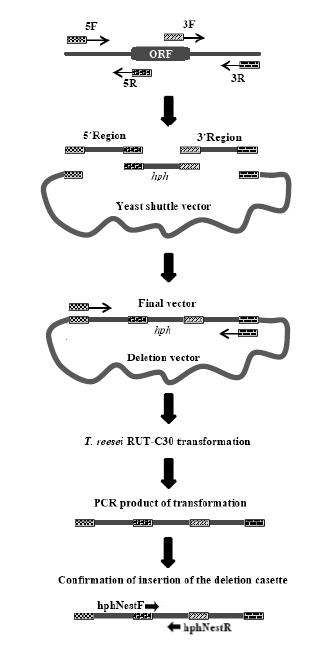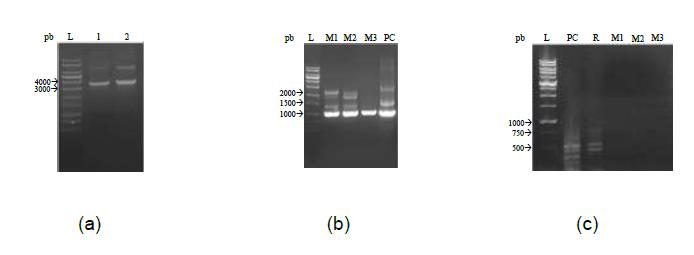Abstract
The second-generation bioethanol employs lignocellulosic materials degraded by microbial cellulases in their production. The fungus Trichoderma reesei is one of the main microorganisms producing cellulases, and its genetic modification can lead to the optimization in obtaining hydrolytic enzymes. This work carried out the deletion of the sequence that encodes the zinc finger motif of the transcription factor ACE1 (cellulase expression repressor I) of the fungus T. reesei RUT-C30. The transformation of the RUT-C30 lineage was confirmed by amplification of the 989 bp fragment relative to the selection marker, and by the absence of the zinc finger region amplification in mutants, named T. reesei RUT-C30Δzface1. The production of cellulases by mutants was compared to RUT-C30 and measured with substrates carboxymethylcellulose (CMC), microcrystalline cellulose (Avicel®) and Whatman filter paper (PF). The results demonstrated that RUT-C30Δzface1 has cellulolytic activity increased 3.2-fold in Avicel and 2.1-fold in CMC and PF. The mutants presented 1.4-fold higher sugar released in the hydrolysis of the biomass assays. These results suggest that the partial deletion of ace1 gene is an important strategy in achieving bioethanol production on an industrial scale at a competitive price in the fuel market.
Keywords:
Trichoderma reesei; zinc finger motif deletion; ACE1; cellulase; bioethanol





